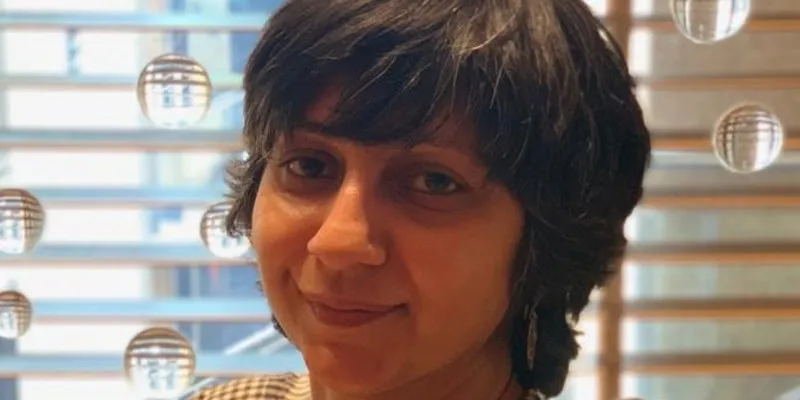Meet the Bengaluru-based incubator that is focused on fintech startups
Tanul Mishra, who formerly built and sold a foodtech startup, now runs Afthonia Lab, which incubates startups in the fintech space, betting on their success by providing a panel of mentors.
Startups and young entrepreneurs need constant feedback from a network of mentors, but sometimes even that is not enough. Tanul Mishra realised there is a dire need for a vertical-specific approach to solve the needs of an entrepreneur. That's how Afthonia Lab was born in 2018 to cater to entrepreneurs in the fintech ecosystem.
Tanul knows a thing or two about the power of networks. She had successfully built and sold artisanal food startup Eatelish after running it for a good six years. Through Eatelish, she built a supply chain network that sourced local ingredients and delivered food to clients.
Before that, Tanul worked for and Reliance Communications. But why choose fintech incubation after foodtech?
“A big part of the last decade was spent in managing payments to the entire supply chain ecosystem and I believed that legacy payment systems need to be disrupted,” Tanul tells YourStory.

Tanul, founder of Afthonia Lab
At Afthonia, she put together a panel of advisors and mentors to enable and foster fintech innovators. As an entrepreneur herself, she has been able to unpack all her learnings to structure solutions for startups.
“When I decided to move to the fintech space as an incubator with the formation of Afthonia Lab it is my learning as an entrepreneur in my first venture that has held me in good stead. The insights I uncovered on the challenges entrepreneurs face prompted me to structure Afthonia in the way that we have," she says.
The need for incubators
According to a survey conducted by IBM in collaboration with Oxford, 90 percent of the startups fail within the first five years of inception. And it isn’t for the lack of ideas or funds. Startups in India have innovative ideas, but often lack the support of a safe ecosystem that ensures the right kind of support, insight, and guidance, helping them experiment with ideas. This is where an independent incubator like Afthonia Lab comes into play.
Bengaluru-based Afthonia Lab aims to help fintech startups build scalable and sustainable businesses. It does so by helping entrepreneurs reach out to experienced mentors, who also provide access to a network that helps them raise capital, build business models, and acquire customers as and when required so that they can successfully live their entrepreneurial dream.
The role of a mentor in Afthonia is to ensure that a startup has a ready product-market fit before launching in the market. They advise it to experiment with the idea before concluding that there is a large market.
According to a joint report released by Nasscom and consulting in 2017, India has the third-largest number of incubators and accelerators, but is still at a nascent stage with only 200-odd operating incubators, as opposed to the 1,500 in the US, and 2,000 in China. Forty percent of these incubators and accelerators are located in Bengaluru, Mumbai and Delhi.
However, Tier-II cities are now a focus for any forward-thinking incubator and accelerator, thanks to the wealth of innovative ideas and the spirit of entrepreneurship that is emerging from these cities.
Most of the Indian incubators are either backed by the government or educational institutions. As a result, they face challenges in bringing in sharp business learning into the space. This is the gap Tanul hopes to bridge.
"Another thing I have noticed is most incubators are focused on supporting entrepreneurs that are operating in the B2C space. We, on the other hand, are more focused on entrepreneurs who deliver solutions to solve challenges for the myriad of businesses that can do with an innovative fintech solution and change the game of how business is conducted," she says.
How Afthonia helps
The Lab works with the startups to figure out and fix the issues they face in their journey towards excellence at any stage of their lifecycle. Tanul says it provides an insight-forward ecosystem that addresses the gaps that most startup entrepreneurs face while navigating the traditional Indian financial industry and also ventures to ensure a safe space for innovators to experiment with their ideas.
As an independent incubator with a global panel of mentors, advisers, and corporate partners, Afthonia Lab is bringing in the skill sets that are generic to businesses and specific to the fintech space.
“Afthonia provides access to a quality network to enable a sound product-market fit both locally and globally. It also enables value-based learning through its mentoring programme, and ensures timely access to the investor community. We offer insight-based guidance to help startups build their product,” Tanul says.
The major hurdle for Afthonia was to make startups or potential incubatees believe in the incubation model. "The opportunity is to make sure that one is adding value in some way. Since Afthonia Lab only works with equity and there is no management fee/upfront fee from the startups involved in the services Afthonia provides, we are banking on the growth of the startups for us to turn profitable," Tanul explains.
The business model
Many incubators prefer to take an upfront fee for the services they provide, but Afthonia Lab, Tanul adds, believes in having its skin in the game. Hence, it works on a percentage of equity, intrinsically tying its success to that of the startups.
The fintech lab’s core focus for the next 18 months is to incubate at least five quality startups in the fintech domain, particularly those working in insurtech, fraud and risk management. Tanul says it is also actively looking at incubating women-led fintech startups, even if they are in idea stage or prototype stage.
At present, Afthonia has two incubatees in its cohort: Block Survey, a blockchain platform for privacy-focused surveys and forms on the internet, and Ginger Root, a startup that aims to address gaps such as wallet hoarding, sensitive data (risk fraud), use of multiple accounts at configuration level or in real-time, and basic transaction management.
Considering how highly regulated the fintech industry in India is, not many incubators venture into this space. Afthonia’s USP is that it works with entrepreneurs that have a startup idea even at the POC level or idea stage. When startups come to Afthonia there is no set time gestation for them to prove their model.
"It may take six months or even a year for a startup to start seeing success in the market and we patiently partner with them for as long as it takes. There is no six-week or eight-week graduation that our incubatees go through," says Tanul.
Known incubators and accelerators include the likes of Y Combinator and 500Startups, but if you ask Tanul she would say they are focused on a different business model. And rightly so.
(Edited by Evelyn Ratnakumar)









